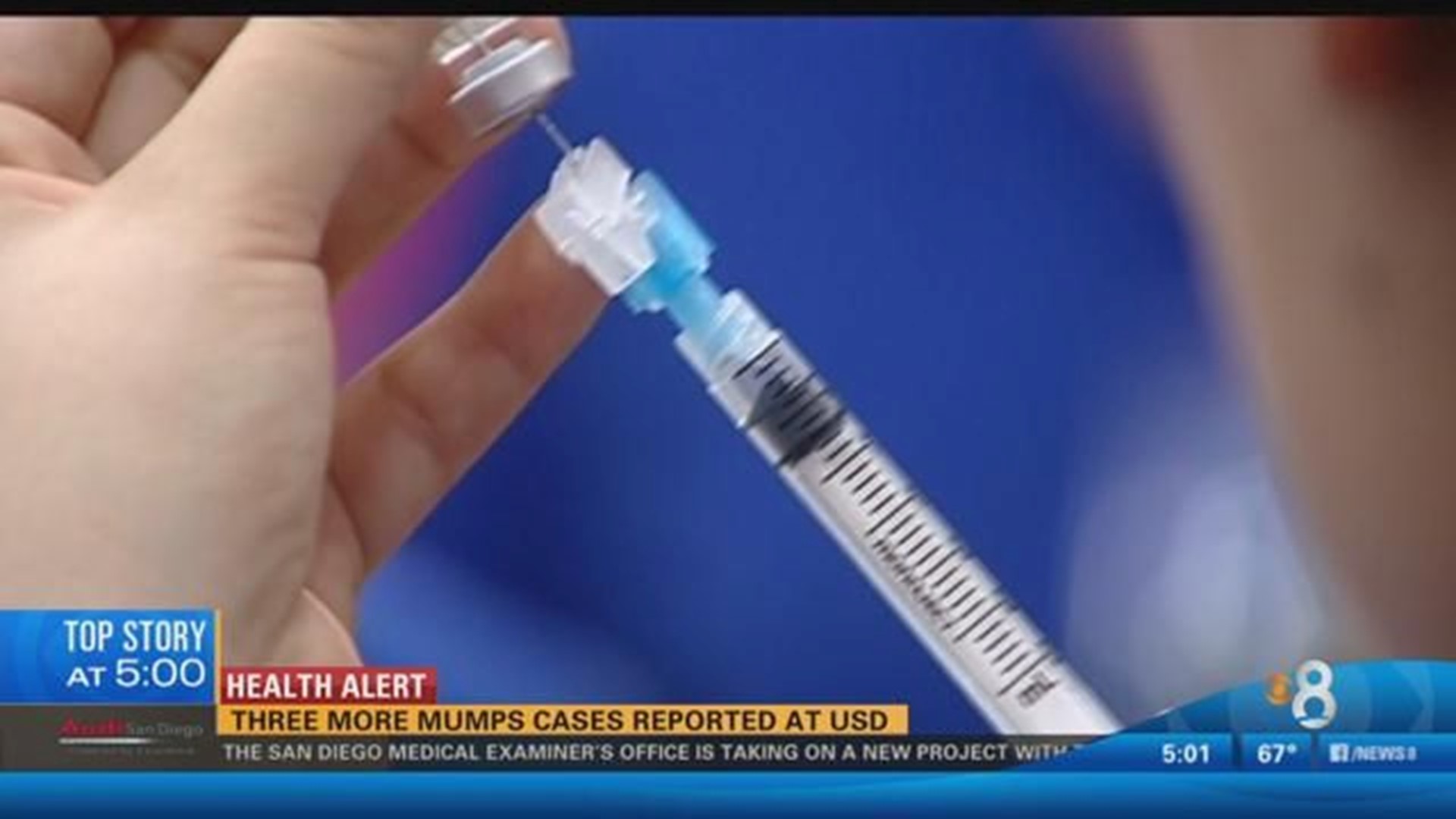SAN DIEGO (CNS) - Three more University of San Diego undergraduate students tested positive for mumps, on top of two others reported last week, county health officials reported Monday.
The county Health and Human Services Agency said the three had close contact with the student who was originally diagnosed with the highly contagious virus. It's unknown where the first student was exposed to the
disease.
RELATED: Mumps case reported at the University of San Diego
Two or three mumps cases are found in San Diego County each year, mostly in people who had been traveling.
"Several colleges and universities across the country are currently having mumps outbreaks,"said Dr. Wilma Wooten, the county's public health officer. "Spring break is going to bring an opportunity for this disease to spread, so students should be sure they are up to date with mumps and all other recommended vaccines."
HHSA officials said two free vaccination clinics will be held on campus this week for undergraduate students. More information is available by calling (619) 260-4595.
Mumps is spread by coughing, sneezing or close contact with an infected person. The virus causes a fever, headache, earache, and inflammation of the salivary glands that results in swelling and tenderness at the angle of the
jaw.
Severe complications are rare, but can include meningitis, decreased fertility, permanent hearing loss, and, in extreme cases, fetal loss during first trimester of pregnancy. Most people recover without problems.
According to the HHSA, the best way to prevent mumps is by getting the MMR -- measles, mumps and rubella --vaccine.
Two doses of the vaccine are recommended -- one at 12 to 15 months of age and another at 4 to 6 years of age. A third booster shot is recommended for those in close living conditions when there is an outbreak.

